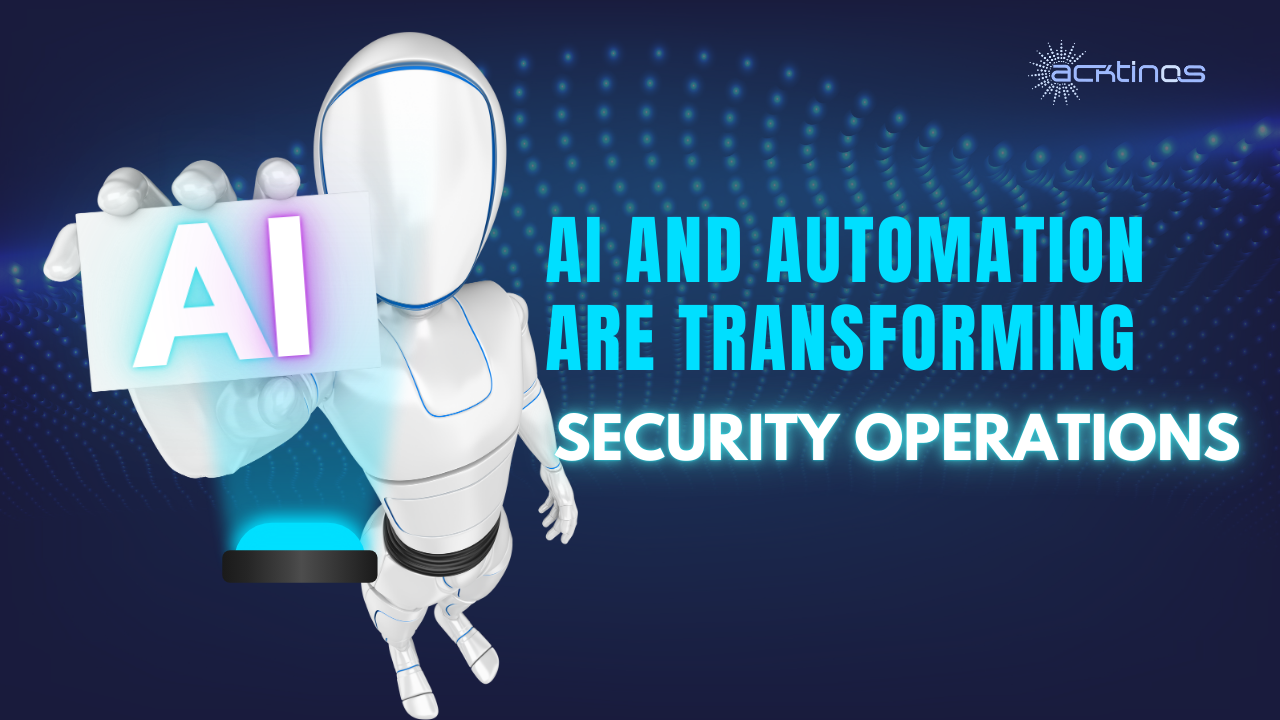The future of security operations is unfolding in real time, and artificial intelligence (AI) is at the center of it. From predictive threat detection to automated response protocols, AI and automation are revolutionizing how organizations manage and secure their digital and physical environments.
But while these innovations promise efficiency and scalability, they also demand that companies re-evaluate how they approach security operation management. The question isn’t whether AI is transforming security, it’s whether your organization is ready for the shift.
The Rise of AI in Security Operation Management
AI-powered solutions are already reshaping core aspects of security operations, enabling faster decision making, real time analysis, and automated incident response.
Key Capabilities of AI in Security Ops:
- Threat detection & response: AI analyzes vast amounts of data to identify anomalies and potential threats that human analysts may miss.
- Predictive analytics: Machine learning models can forecast vulnerabilities and flag suspicious behavior before an incident occurs.
- Automation of repetitive tasks: Tasks like log monitoring, access control, and alert prioritization are increasingly being handled by AI-powered systems.
These improvements not only free up human teams for strategic work but also significantly reduce the time it takes to detect and respond to incidents.
How Automation Enhances Incident Response
Traditional security teams often struggle with alert fatigue, trying to manage thousands of daily logs and events. Automation changes the game by:
- Filtering false positives with intelligent algorithms
- Initiating predefined playbooks for common security scenarios
- Improving response times through instant, rule-based actions
For instance, if a suspicious login attempt is detected, an automated system can temporarily lock the account, notify IT, and log the incident, all without human intervention.
This kind of response at scale is impossible without integrating AI and automation into your security operation management strategy.
AI-Powered Security: Real-World Use Cases
Organizations across industries are already leveraging AI in their security workflows:
- Financial institutions use behavioral biometrics and AI to detect fraud in real time.
- Healthcare providers deploy AI to monitor access to sensitive patient data and flag irregular usage.
- Corporate IT teams rely on security information and event management (SIEM) systems enhanced with machine learning to detect advanced persistent threats (APTs).
In each case, AI delivers deeper insights, faster action, and enhanced security outcomes.
Challenges and Considerations
While AI and automation promise great benefits, they come with challenges:
- Data privacy and compliance: AI systems must be aligned with regulations like GDPR, HIPAA, and CCPA.
- False sense of security: Overreliance on automation can lead to blind spots if systems aren’t regularly audited.
- Skill gaps: Security teams need training to manage and interpret AI-driven tools effectively.
Organizations must integrate AI capabilities thoughtfully, complementing human expertise rather than replacing it.
Is Your Organization Ready for the Future of Security Operations?
Here are some questions to assess your readiness:
- Have you evaluated your current security infrastructure for AI integration?
- Are your teams trained to work with AI-powered tools?
- Do you have a roadmap for transitioning manual security processes to automated systems?
- Is your data governance strategy aligned with AI-driven workflows?
Preparing now will ensure a smoother transition into the next generation of security operation management, where AI doesn’t just support security, it drives it.
The Human-AI Partnership in Security Operations
AI excels at data analysis and automation, but it lacks the judgment and ethical reasoning of human intelligence. The most effective security operation management strategies embrace a hybrid model, one where machines handle data-heavy tasks, and humans make the strategic calls.
Key Benefits of Human-AI Collaboration:
- Improved decision-making: AI presents insights; humans interpret and act.
- Reduced analyst burnout: Analysts are freed from repetitive tasks to focus on investigation and response.
- Ethical oversight: Human input helps prevent AI from making biased or incorrect decisions based on flawed data.
Ultimately, AI should enhance, not replace, the skills of cybersecurity professionals.
Integrating AI into Your Existing Security Stack
Adding AI capabilities doesn’t always mean replacing what you have. Many organizations are now integrating AI into their existing tools and platforms to improve ROI without overhauling their entire security architecture.
Steps to Effective Integration:
- Audit your current systems: Identify where automation or AI could enhance performance (e.g., SIEM, SOAR, EDR).
- Select interoperable solutions: Choose AI tools that work with your current tech stack.
- Pilot and scale: Start small with a controlled rollout, measure results, and scale accordingly.
Seamless integration ensures you get the benefits of AI while preserving your current operational flow.
Future Trends: What’s Next for AI in Security Ops
Looking forward, AI in security operations will continue to evolve, with advancements likely to include:
- Autonomous threat response: AI systems taking independent action within predefined boundaries.
- AI for insider threat detection: Using behavioral analytics to identify subtle patterns among internal users.
- AI-driven compliance auditing: Automating compliance checks and reporting with accuracy.
As threats become more sophisticated, so too must the tools designed to stop them. Staying ahead of these trends will be critical for securing enterprise environments.
Conclusion
The future of security operations is intelligent, automated, and evolving fast. Organizations that embrace AI and automation now will be better equipped to handle emerging threats, reduce operational complexity, and make smarter, faster decisions.


